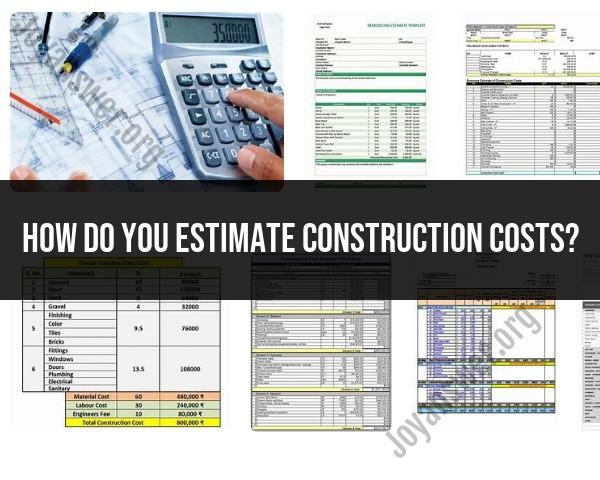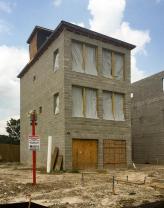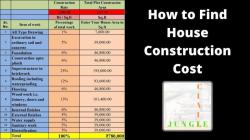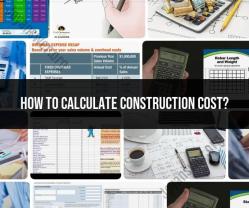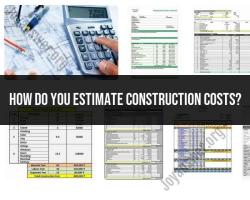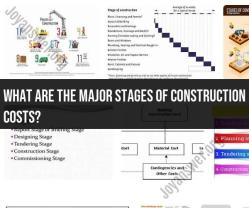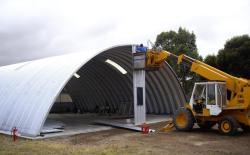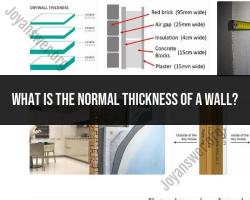How do you estimate construction costs?
Estimating construction costs involves a thorough assessment of various factors. Here's a general process to help you estimate construction costs:
Project Scope and Specifications:
- Define the project scope, including size, type of construction, materials, and desired quality standards.
- Have detailed specifications and plans to understand the project's requirements.
Quantity Takeoff:
- Quantify the materials needed for construction based on the project plans and specifications.
- This involves measuring quantities of materials like concrete, steel, bricks, etc., required for different parts of the project.
Unit Cost Estimation:
- Determine the unit cost of each material or item needed for construction. This involves researching current market prices or using historical data.
- Consider labor costs, equipment rentals, permits, subcontractor fees, and overheads.
Labor Costs:
- Estimate the labor required for each task in the project.
- Calculate labor costs based on the number of hours required, labor rates, and any additional costs like overtime.
Equipment and Machinery Costs:
- Determine the need for equipment and machinery and estimate their costs, including rental fees or purchase costs.
Overheads and Contingencies:
- Include overhead costs such as administrative expenses, insurance, permits, and any other indirect costs.
- Allocate a contingency budget for unexpected expenses or changes in the project.
Profit Margin:
- Factor in a reasonable profit margin for the construction company or contractor.
Summation and Final Calculation:
- Sum up all the estimated costs for materials, labor, equipment, overheads, contingencies, and profit margin to get the total construction cost estimate.
Documentation and Presentation:
- Compile the estimation into a detailed document or report, outlining the breakdown of costs for transparency and clarity.
Remember, accurate cost estimation requires experience, knowledge of construction practices, and market conditions. It's crucial to revisit and revise estimates as the project progresses and changes occur. Collaborating with experts, utilizing software tools designed for cost estimation, and referencing historical data can enhance the accuracy of your estimates.
How can one make estimations regarding the expenses of construction projects?
Making accurate estimations for construction project expenses is crucial for ensuring project success. Here are some key steps to follow:
1. Define Project Scope:
- Clearly define the project scope by detailing the proposed construction activities, materials, finishes, and specifications. This provides a solid foundation for cost estimations.
- Consider potential changes and variations to the initial scope and factor in contingency reserves.
2. Material Takeoff:
- Develop a detailed list of all materials required for the project, including quantities, specifications, and unit prices. Utilize industry-specific software or consult material suppliers for accurate pricing.
- Update the material takeoff as the design progresses to reflect any changes.
3. Labor Costs:
- Estimate labor costs by breaking down the construction tasks into individual activities. Calculate the required labor hours for each activity based on industry standards or historical data.
- Factor in labor rates for different worker categories, including prevailing wages if applicable.
- Consider including overhead and profit margins for labor costs.
4. Equipment and Subcontractor Costs:
- Research and estimate the costs associated with renting or purchasing necessary equipment. Consider factors like duration of use, mobilization costs, and fuel expenses.
- Obtain quotes from qualified subcontractors for specific portions of the work where outsourcing is beneficial.
- Factor in mobilization costs, insurance, and potential change orders when estimating subcontractor costs.
5. Permits and Fees:
- Research and compile a comprehensive list of permits and fees required for the project.
- Estimate the costs associated with obtaining these permits and comply with regulatory requirements.
6. Indirect Costs:
- Include indirect costs like project management, site supervision, insurance, utilities, waste disposal, and temporary facilities.
- Allocate appropriate percentages based on project complexity and industry standards.
7. Contingency Reserves:
- Allocate a contingency reserve to cover unforeseen expenses and potential project changes.
- The contingency reserve should typically be a percentage of the total project cost, ranging from 5% to 10% depending on project complexity and risk.
8. Estimation Tools:
- Utilize construction cost estimation software or consult with experienced cost estimators to leverage their expertise and industry-specific data.
- Consider historical data from similar projects to gain insights into cost trends and potential variations.
9. Regularly Update Estimates:
- Regularly review and update cost estimates as the project progresses.
- Monitor cost trends, identify potential deviations, and take corrective actions to ensure project budget adherence.
10. Communication and Collaboration:
- Maintain clear communication and collaborate effectively with all stakeholders, including project owners, architects, engineers, and subcontractors.
- Ensure transparency in cost estimations and address any concerns or questions promptly.
Additional tips:
- Conduct thorough market research to stay updated on current material and labor costs.
- Benchmark your estimates against similar projects to validate their accuracy.
- Consider alternative construction methods and materials to optimize costs without compromising quality.
- Encourage innovation and explore cost-saving opportunities throughout the construction process.
By following these steps and utilizing appropriate tools and methodologies, you can make accurate and reliable estimations for construction project expenses, contributing to project success and financial stability.
